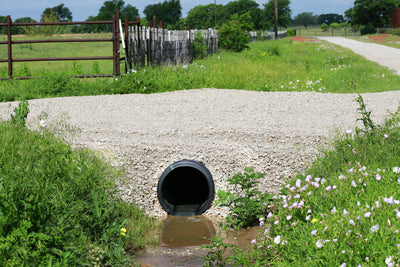Water Runoff From Farms and Why You Should Be Concerned
RSS
Anya Alvarez | Contributor
*Updated 4/3/2023*
Every summer scientists from the Environmental Protection Agency and the U.S. Geological Survey test water for pesticides and nutrients used in farming.
The reason behind scientists taking an interest in testing for these chemicals, is due to the rising concerns that water is being contaminated by agricultural runoff. With the the high productivity of the economy of agriculture, it has had the side effect of harming the environment, particularly impairing water quality according the to EPA.
These tests can detect the presence of mercury, livestock hormones, and pesticides like weed killer. In addition, a 2022 study revealed that very high levels of PFAS were detected in 6 of 10 varieties of pesticides commonly used in rural and agricultural environments.
Scientists believe that climate change is the leading cause of the large runoff of chemicals we are seeing due to the more inconsistent weather patterns we are seeing now. Last year, the drought prevented absorption of fertilizers, causing an extra load of nutrients to flow into the midwest waterway, which will later find itself in the Gulf of Mexico. Experts fear the negative effects this will have on aquatic life.
For some years, if it has been a very wet spring, farmers have shorter periods of time to apply pesticides and fertilizers (which must be done when it’s dry). The intensity of the rainfall can create a large amount of nutrient loss and more runoff of these chemicals.
As more metropolitan areas raise concerns about drinking water safety though, it is imperative for scientists to further look into this. But other concerns raised by municipalities are the costs associated with treating contaminated water. And scientists also worry that consumers who no longer trust the quality of their tap water, will start buying more bottled water. For these reasons alone, consumers should invest in water filtration systems at home, which are financially and environmentally sustainable.
Besides studies being conducted, the EPA has also taken action by creating the WOTUS (Waters of United States), a federal provision, which was drawn off the Clean Water Act, that supersedes state regulatory agencies when the EPA feels that they have failed to meet expected requirements to protect water supplies. WOTUS is implemented to regulate agricultural runoff water pollution and discharges.
The use of WOTUS has been in the news recently with the Des Moines Water Works Suit, which claims that 92 percent of the nitrates and 80 percent of the phosphorous is entering water from the farmland chemicals. This suit may take years to settle because of the difficulty of proving that water contamination is mostly due to farmland chemicals. Another issue that needs to be resolved is determining if county governments, or state or federal governments should hold responsibility in controlling the levels of contamination in local waters from farmlands.
Many farmers are concerned with government overreach through initiatives like WOTUS, but the EPA’s concern is weighing economic prosperity versus potable water.
One thing is for certain though: safe drinking water should be a right for anyone, no matter where that person lives. And if the government cannot ensure your drinking water is safe, then you should take matters in your own hands and try filter your own water.
The agricultural runoff effect studies from the from EPA and U.S. Geo Survey will be released in August.
Other Articles We Think You'll Enjoy
How New Policies Will Impact Water Quality In The Great LakesWhat You Need To Know About Arsenic In Drinking Water
What Most People Don't Know About Well Water




